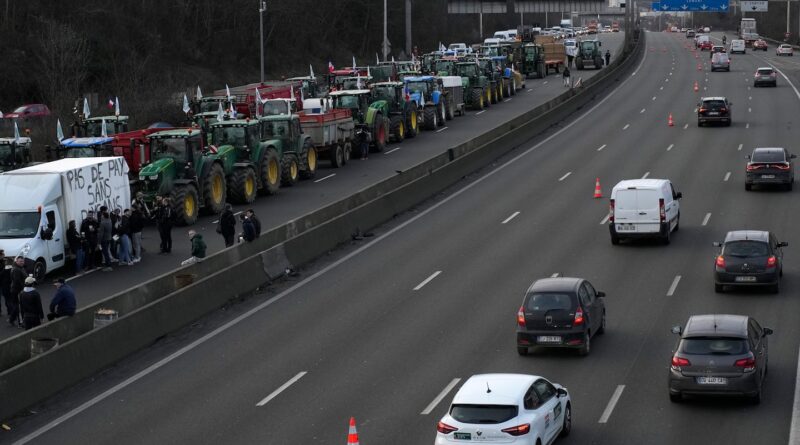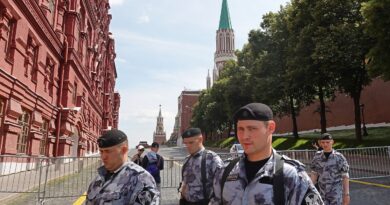French farmers encircle Paris with an angry blockade
France is deeply familiar with protest, but this latest uprising by French farmers comes as other workers from Europe’s countryside have been driving their combines and harvesters into the streets to protest cuts to subsidies and new regulations, some of it designed to reduce climate emissions.
Interior Minister Gérald Darmanin announced the mobilization of 15,000 police. The minister vowed to keep the capital’s two major international airports — De Gaulle and Orly — open and to protect a major produce market at Rungis.
Despite the martial rhetoric, there were no reports of violence several hours into Monday’s blockade.
In recent months, farmers have launched similar protests in Belgium, Germany, Poland, Romania and the Netherlands.
What to do about the farmers is now a hot political topic in Brussels and European capitals — as their revolt and rhetoric are being adopted and amplified by populist politicians, some from the far right.
In Berlin two weeks ago, farmers in their tractors from across Germany massed in the city center, blocking access to parliament. They were enraged over the government’s plan to phase out agricultural fuel subsidies.
The protesters in Berlin waved signs reading, “If the farmer dies, the country dies.” Some complained to reporters there that Germany and the European Union seemed to have plenty of money for foreign aid but not enough for their own people.
In the Netherlands, farmers have been protesting the government’s attempt to slash emissions of heat-trapping gases coming from the rear ends of their diary cows, in an ongoing conflict known as “the nitrogen wars,” which could see the herds there culled by half. Irish farmers are also up in arms.
In France, the farmers say they are being driven into ruin — and bankruptcy — by an onslaught of bureaucracy and new regulations, some designed to curb climate change; by cuts to their traditional subsidies on the diesel fuel used by their farm machines; and by competition from imported foods.
Many of the farmers are independent operators, not large corporate producers, and so the greater public might be likely to have sympathy. These are pocketbook issues for both consumers and producers.
The farmers are also rebelling against attempts by retailers and the government to bring down their prices to curb food inflation.
The farmers say their way of life is being threatened, from within France and from abroad.
Monday’s protests in France were led by the National Federation of Farmers’ Unions and the Young Farmers movement, whose members turned town and village road signs upside-down, in a tactic lifted from the French resistance movement to German invasion in World War II.
The rhetoric is heated — and militant.
“This is the final battle for farming. It’s a question of survival,” Karine Duc, a farmer in the southwestern Lot-et-Garonne department, told Agence France-Presse as she joined a convoy headed for Paris.
The French news agency reported that a banner on a tractor in the convoy proclaimed, “We will not die in silence.”
Cyrille Milard of the French Farmers Union spoke to reporters in Réau, claiming the protesters “hold the eight highways” into Paris. The news website Le Parisien quoted him saying: “We will probably block until Thursday. If the pressure is not strong enough, we can go further in blocking … We must hold on day and night.”
Representatives of the farm union were set to meet with France’s new prime minister, Gabriel Attal, later Monday. French President Emmanuel Macron called an earlier meeting of his cabinet, before he flew off for a state visit to Sweden.




